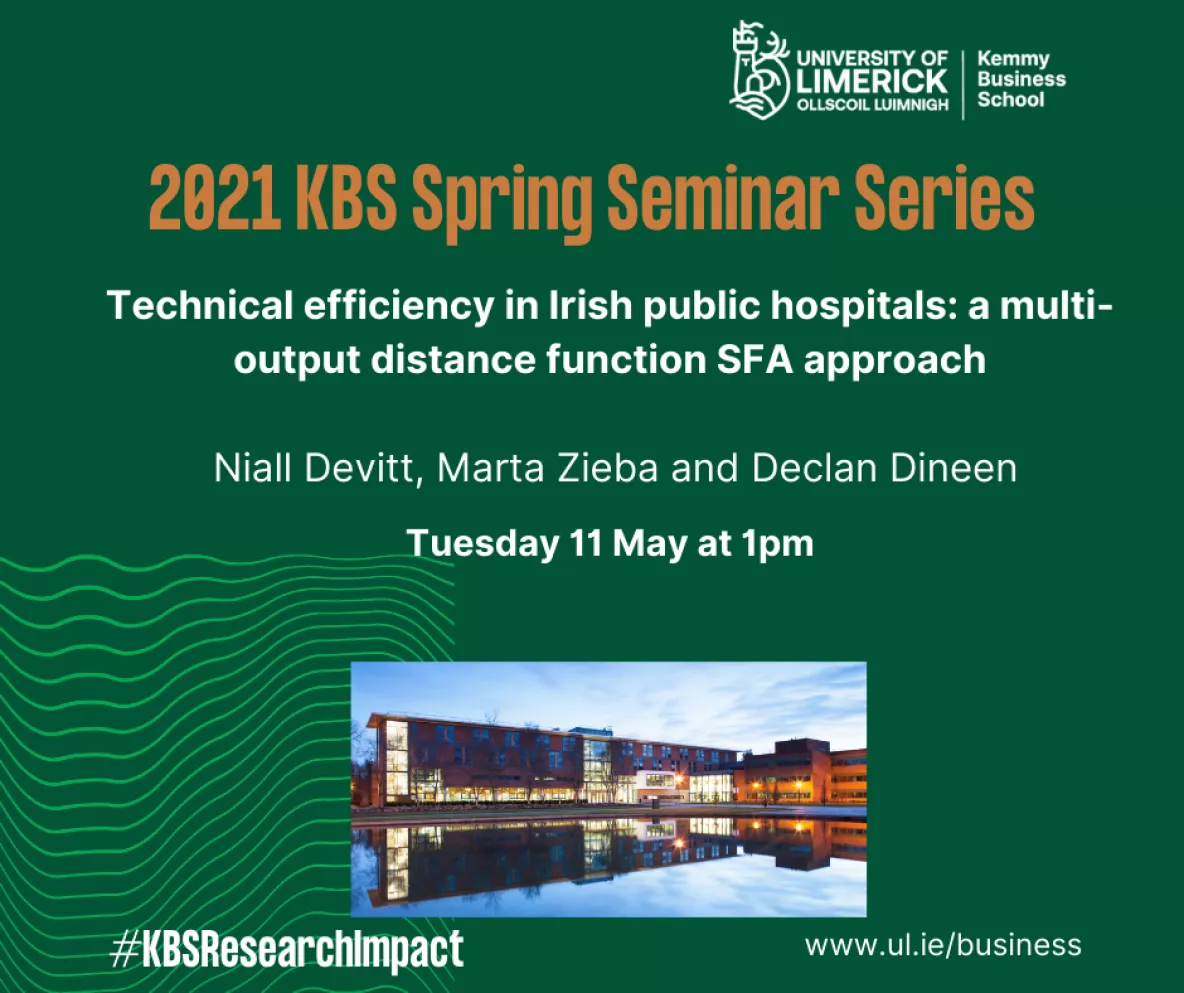

The 2021 KBS Spring Series continues on Tuesday 11th May at 1.00 p.m. with a seminar by Niall Devitt, Marta Zieba and Decan Dineen. The seminar format is informal and interactive facilitating discussion and Q&A and will take place on MS Teams Click here to join the meeting The title and abstract are below
Technical efficiency in Irish public hospitals: a multi-output distance function SFA approach - Niall Devitt, Marta Zieba and Declan Dineen
Abstract: Understanding resource utilization in the public hospital system has become imperative for academics, healthcare managers and policymakers due to growing healthcare costs and the continuing record numbers of patients being recorded on trolleys. In this paper an output-oriented technical efficiency (TE) of hospitals is evaluated as the ability to produce the highest number of treated cases (outputs) given limited or constrained resources. The TE and efficiency determinants for 37 acute public hospitals in Ireland are estimated using monthly panel data for the years 2017-2018. The utilisation of a trans-logarithmic output distance function permits an accurate estimation of the multi-output production technology of these hospitals. The true-random effects stochastic frontier model accounts not only for noise but also for the unobserved heterogeneity of hospitals, and it allows for the decomposition of inefficiency into transient and persistent terms. Our results show that Irish public hospitals are operating at relatively high efficiency levels but with high occupancy levels. This implies that the capacity issues prevent Irish hospitals from operating closer to the fully efficient production frontier. Moreover, returns to scale are decreasing but above 0.9 and input elasticities are positive for all factors of production (doctors, nurses, non-medical staff and beds). Whereas all output elasticities positively contribute to the production of case-mix adjusted output, inpatient discharges are almost three times as resource-intensive as the day-cases. These results reinforce the rationale for the HSE policy in Ireland to decrease the level of inpatient activity in acute public hospitals by introducing more interventionist policies with pre-emptive elective surgeries as day-cases. Furthermore, the scope of hospital activities which are determined by the hospital model-type increases the level of output in hospitals, while the share of emergency patients negatively affects their production. We also find that the length of stay is an important contributor to hospitals’ inefficiency and that the medium-sized hospitals with 200 to 400 beds are the most efficient hospital units.
All are warmly welcome, further information on the KBS Spring series can be found at https://www.ul.ie/business/research/research-events
Email: business@ul.ie
Postal Address: Faculty Office, Kemmy Business School, University of Limerick, Limerick, Ireland.
